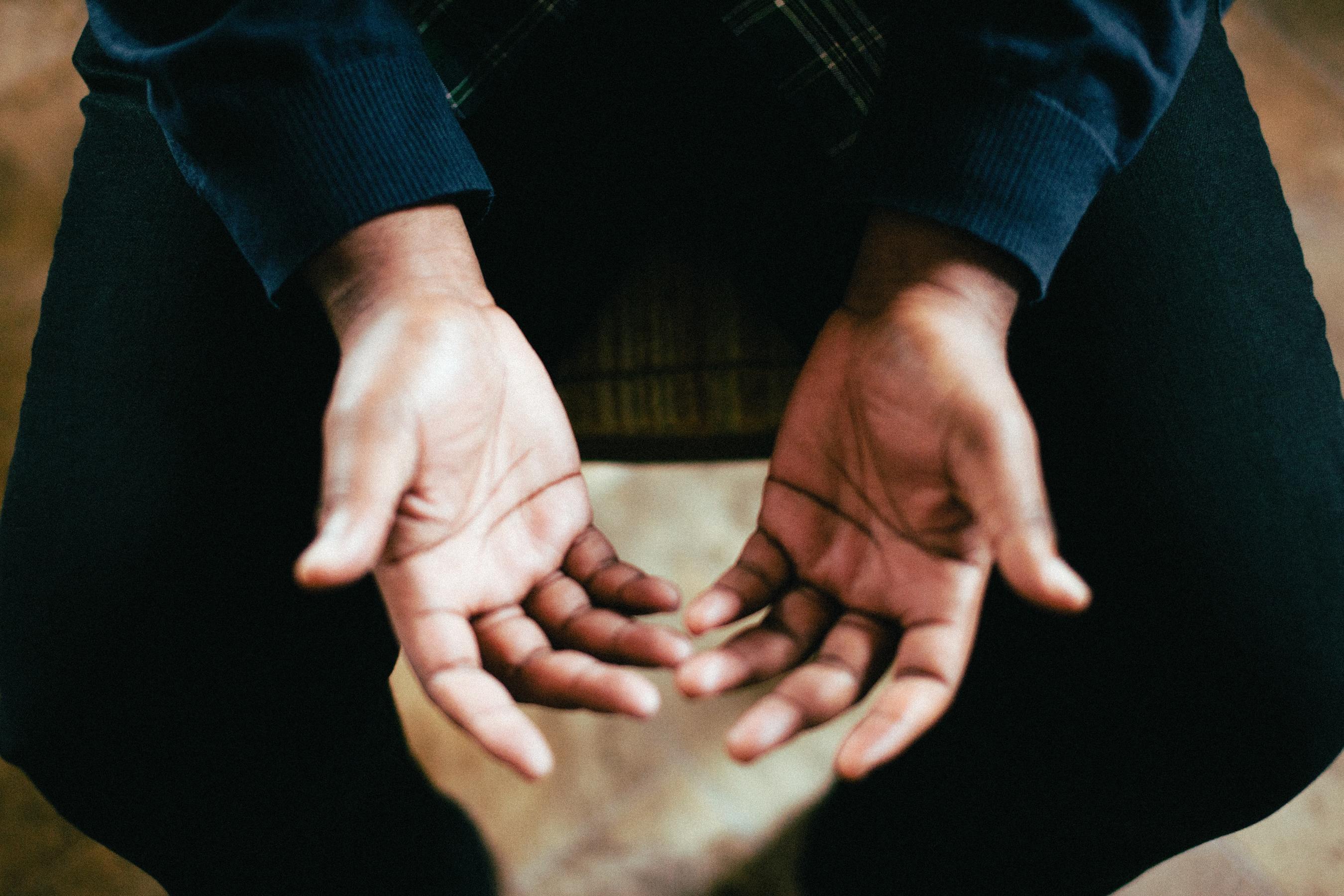Changes in our weather patterns can impact more than just the clothing choices we make; it can also impact our mental health. With more dramatic shifts in our environment – from fires to earthquakes, volcanic eruptions to shocking temperatures – instances of environmental trauma are becoming increasingly prevalent. In this article, I will share some simple strategies that you can use to help combat side effects associated with post traumatic stress disorder (PTSD) in relation to environmental trauma and I will explain the main seven emotions that are associated with trauma, from a Chinese medicine perspective.
Managing & Preventing Symptoms of Emotional Imbalance with Acupressure
In a perfect world, there would be no environmental crisis and if there were, acupuncturists would be able to treat in the field. Since that is not our current reality, here are some acupressure points that you can utilize to handle the effects of natural disasters wherever you are:
Third Eye
(Yin Tang) Best for relieving anxiety, grief, and headaches, this point is also beneficial in opening up the nasal passages which provides clearer vision (both physically and metaphorically). To find this point, follow the bridge of your nose up between your eyebrows until you meet your brow bone. Apply pressure with your first and middle fingers and move them in a circular motion.
Inner Gate
(Neiguan) This is an incredibly common point that is used for calming and subduing insomnia. It is particularly helpful for symptoms of Anger, Pensiveness, and Grief. This point is located in the middle of the wrist about 2 finger-widths up. Apply pressure for up to a minute while taking deep breaths.
Stomach 36
(Zusanli) This is a go-to point for maintaining optimal health. In practice – all disorders coming from excessive emotions can be improved by this one point. It addresses symptoms ranging from indigestion and insomnia to joint pain and depression. You can find this point by placing four fingers at the base of your knee cap towards the outside of the leg; once in position, this point is located where your pinky falls.
Kidney 3
(Taixi) Kidney 3 is responsible for nourishing your yin, which can be depleted when in a constant state of fear or fright. Applying pressure to this point will evoke a sense of grounding that quells fear and fright. It can be found on the inside of the ankle, directly behind the medial ankle bone.
Shen Men
(Heavenly Gate) This point is helpful for resetting the sympathetic system and helps to bring the mind out of fight or flight mode and into a state of calm. The heart and the mind benefit greatly from this pressure point. It is located on the upper part of the ear in the indentation and can be rubbed in circular motions. This point is extremely popular and is often used.

While applying pressure to these points, it will also be beneficial to do some light breathwork. A simple exercise to try is:
- Hold your tongue to the roof of your mouth and inhale down into your navel
- Inhale through your nose for a count of 5 & slowly breathe out through your mouth for a count of 5
Doing this exercise 3 times in a row will help bring oxygen to the brain and allow you to think and feel more clearly.
Natural disasters and environmental trauma are, unfortunately, becoming more common with our climate crisis so it is important to keep yourself centered. Implementing some of these exercises on a routine basis will allow you to easily enter a state of calm when the world around you becomes the opposite.
7 emotions associated with trauma that have strong impacts on our bodies:
Joy
For someone who has experienced or is recovering from trauma, joy can often look a bit chaotic. An individual may be on a constant search for things to bring them joy which can result in a dependence on vices like alcohol, drugs, or anything else that brings immediate “joy.” From a Chinese medicine perspective, our Heart and Small Intestine are related to the Fire element which, when experienced naturally, leads to passion, happiness and an ability to transform and separate the clear from the turbid fluids. When Fire is in excess, however, it can lead to impulsive decisions, mania, manic laughter, swelling of the neck and throat, breast disorders, blood disorders, digestive disorders, and urinary disorders. A lack of Joy can also lead to deficient conditions like loss of voice, stiffness of the tongue and decreased blood circulation. Keeping Joy in balance allows one to live their passion, speak their truth and gives them the ability to see and do what they love. It also allows us to jump into action when it comes to finding ways to help others going through traumatic situations.
Anger
Anger may be the most difficult emotion to pinpoint because it manifests differently for every individual. It’s usually a hidden emotion and difficult to control, as it often comes out like a volcanic eruption. From a Chinese medicine perspective, anger is associated with the wood element which is in turn related to the Liver and Gallbladder. When these organs are overextended, one can experience a sour taste in the mouth, intense vivid dreaming, lots of shouting, deep sighing, and issues with vision/eyes. Anger can also present itself in vertex headaches, elevated heart rate, and bloodshot eyes. Since the Liver stores the blood, dominates the movement of Qi in our body, and controls the sinews – an imbalance can also lead to blood pressure disorders and disorders like stroke and epilepsy.
When experiencing continued effects, post natural disasters, it is extremely understandable to feel Angry at how things are being handled… or lack thereof. Feeling Anger can be stressful and taxing, but it can also be incredibly fueling! It’s the fuel that, for example, allows people from one side of Puerto Rico to travel to the other side of Puerto Rico in caravans in order to provide much needed care and resources to people in need when aid doesn’t arrive fast enough.
Grief and Sorrow
This is a disheartening feeling that can be triggered by the loss of one’s home, job, or loved one. Grief and sadness, in Chinese medicine, are related to the metal element which is in turn related to the lungs. The Lung is considered the most delicate organ because it is the most susceptible to pathogenic factors and people who are grieving are more susceptible to lung problems such as shortness of breath, lowered immunity leading to colds or bronchitis, and chest tightness. A healthy expression of Grief originates with deep breaths and sobbing with crying that lessens over time; however, unresolved grief can lead to breathing disorders and can cause a disruption to Qi being circulated throughout the body.
Anxiety
Anxiety can come in waves and can easily be paired with other emotions leading to complex situations. From a Chinese medicine perspective, it can be explained as Qi being unable to flow freely through the body. The Lung and Large Intestine are the paired organs that control breathing and the elimination of waste. An excess of this emotion can lead to things like shortness of breath, ulcerative colitis or issues of dryness in the intestines or lungs. For this reason, it’s important to take deep breaths when dealing with high stress situations as the longer it lingers – the more complex and debilitating it can become.
Fear
Fear is the chronic result of fright and can lead to feelings of depression, confusion, and anxiety. Over time, it can also affect both the Kidney and the Urinary Bladder. If someone is living in a constant state of fear, there is a good chance that their Qi will begin to descend which can lead to bladder problems. Continuous fear can also lead to hearing issues and feeling dizzy. In children, fear often leads to bedwetting because of their inability to control fear factors. Helping to clarify that things are balancing or improving is important in helping resolve feelings of fear. It’s also extremely important to allow someone to talk about their fears so that they may process and perhaps find solutions.
Fright
Fright is an acute reaction to instances that are happening now whereas Fear is the chronic worrying of things that have already happened. In terms of environmental fear, experiencing an earthquake once will cause fright, but living through multiple earthquakes will instill a fear of “when it will happen again?” Fright is known to scatter an individual’s Qi and presents itself as indecision, an inability to move one’s limbs (frozen from fright), and confusion.
Pensiveness and Overthinking
When someone has just gone through a traumatic experience, overthinking about the situation is very common and understandable. Individuals experiencing this may feel unable to stay present without their mind wandering, feel stuck on a recurring thought, have trouble sleeping, or encounter excessive mental and intellectual stimulation.
This emotion is tied to the Spleen which correlates with our muscles. Our Brain, the most important muscle, is the most affected; however, the organs affiliated with the “rest and digest” aspects of one’s system are also involved. Any activity that involves a lot of mental effort will run the risk of causing a disharmony of the Spleen. This can lead to a deficiency of Qi which can cause worry, fatigue, lethargy, an inability to concentrate, and loose stools.

If you would like to help with rebuilding efforts or would like to volunteer in communities currently affected by natural disasters, here are some places you can start:
Australia
Jamaica
Global Facility for Damage Reduction and Recovery
Puerto Rico
La Brigada Solidaria del Oeste
Volunteer Forever – Puerto Rico
Local Charities in Puerto Rico






